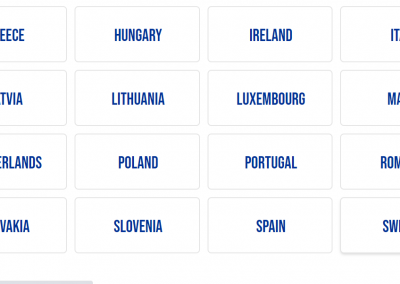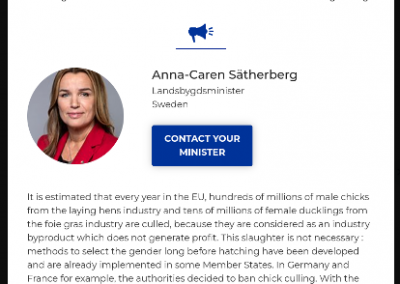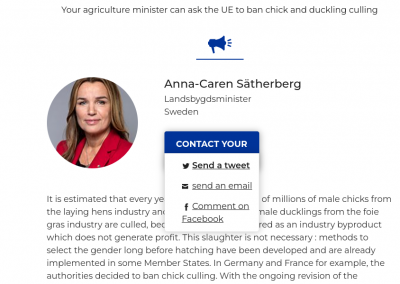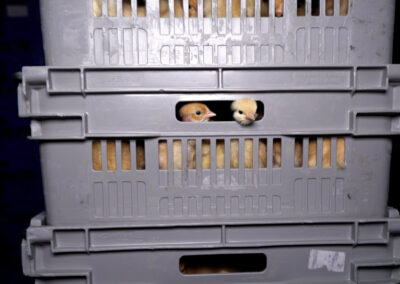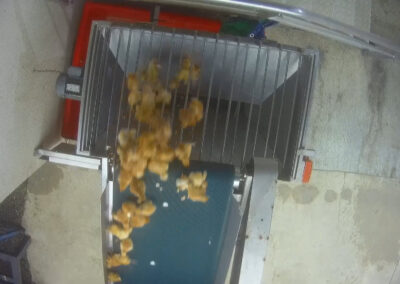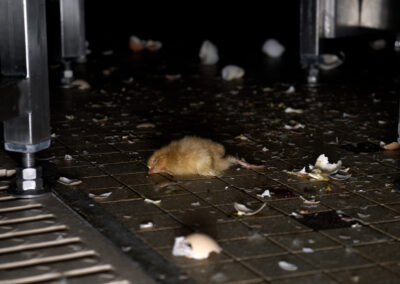STOP THE CRUEL CULLING OF CHICKS AND DUCKLINGS IN EUROPE
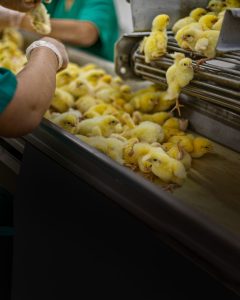 A research carried out by Animal Equality estimates that 330 million male chicks from the laying hens industry and 40 million female ducklings from the foie gras industry are still cruelly killed every year in the European Union as considered an industrial by-product that does not generate profit.
A research carried out by Animal Equality estimates that 330 million male chicks from the laying hens industry and 40 million female ducklings from the foie gras industry are still cruelly killed every year in the European Union as considered an industrial by-product that does not generate profit.
Most common killing methods used are grinding (called also “maceration”) and gassing (asphyxiation with carbon dioxide). Methods that are cruel and cause extreme suffering to animals.
While male chicks are considered useless for the industry because they do not lay eggs and their meat is unusable for human consumption, female ducklings are inadequate for the production of foie gras because their livers are less tasty compared to male ducks.
Not even the time to breathe for a while that chicks and ducklings are selected according to their gender and for the use we humans have decided for them. Scrolled on conveyor belts, grabbed by indifferent operators and thrown alive in shredders without even been stunned or gassed with carbon dioxide.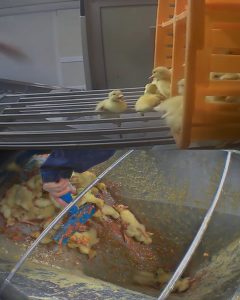
In the light of the above, OIPA has decided to follow a coalition of European animal protection NGOs supporting the campaign “Stop Grinding and Gassing in EU”, coordinated by the French association L214. The aim is to obtain a total ban on chicks and ducklings culling in Europe by pushing a revision of the EU legislation on animal welfare already expected in 2023-2025. The coalition is asking to replace this cruel practice carrying out alternative methods already existing, such as the “in-ovo sexing method” that can determine the sex of a chick/duckling before it has hatched. France and Germany have already banned the culling of chicks, while in Italy the ban will start from 2026 (amendment approved by the Chamber of Deputies in December 2021)
With an appropriate pressure from the citizens around Europe and a lobbying effort towards the European Commission, we believe we can include a ban on both chicks and ducklings culling in the upcoming revision of the animal welfare legislation.
A research carried out by Animal Equality estimates that 330 million male chicks from the laying hens industry and 40 million female ducklings from the foie gras industry are still cruelly killed every year in the European Union as considered an industrial by-product that does not generate profit.
Most common killing methods used are grinding (called also “maceration”) and gassing (asphyxiation with carbon dioxide). Methods that are cruel and cause extreme suffering to animals.
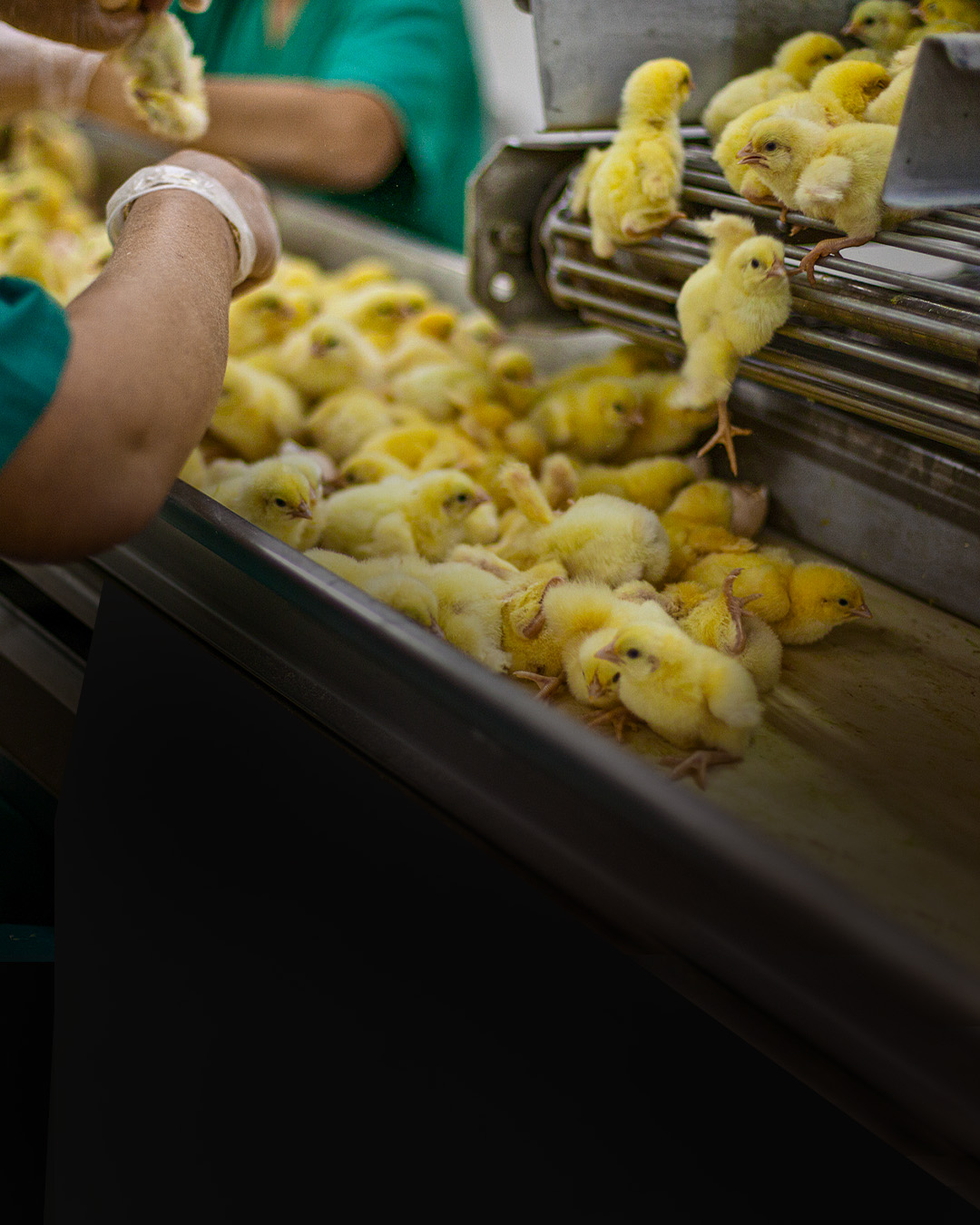
While male chicks are considered useless for the industry because they do not lay eggs and their meat is unusable for human consumption, female ducklings are inadequate for the production of foie gras because their livers are less tasty compared to male ducks.
Not even the time to breathe for a while that chicks and ducklings are selected according to their gender and for the use we humans have decided for them. Scrolled on conveyor belts, grabbed by indifferent operators and thrown alive in shredders without even been stunned or gassed with carbon dioxide.
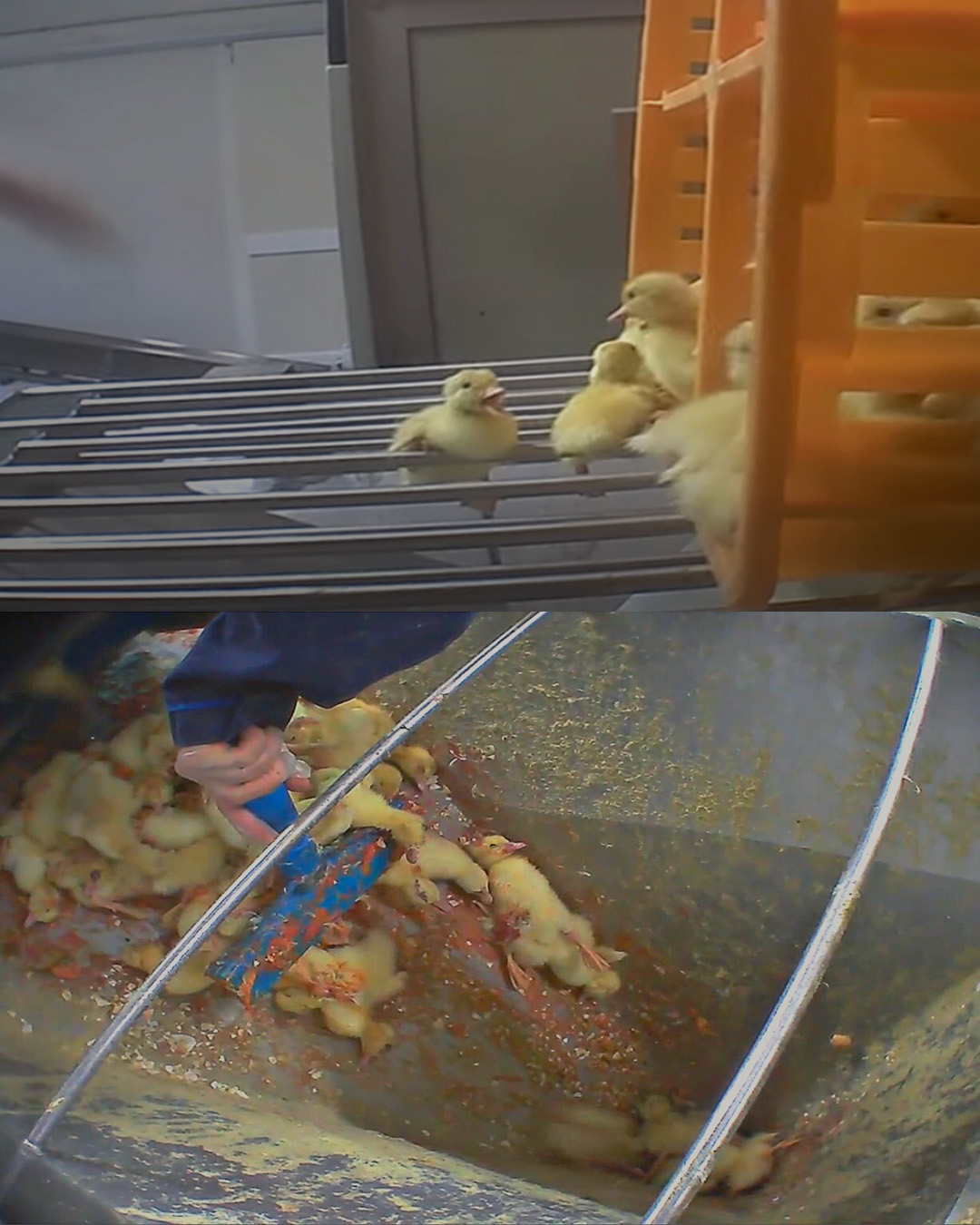
In the light of the above, OIPA has decided to follow a coalition of European animal protection NGOs supporting the campaign “Stop Grinding and Gassing in EU”, coordinated by the French association L214. The aim is to obtain a total ban on chicks and ducklings culling in Europe by pushing a revision of the EU legislation on animal welfare already expected in 2023-2025. The coalition is asking to replace this cruel practice carrying out alternative methods already existing, such as the “in-ovo sexing method” that can determine the sex of a chick/duckling before it has hatched. France and Germany have already banned the culling of chicks, while in Italy the ban will start from 2026 (amendment approved by the Chamber of Deputies in December 2021)
With an appropriate pressure from the citizens around Europe and a lobbying effort towards the European Commission, we believe we can include a ban on both chicks and ducklings culling in the upcoming revision of the animal welfare legislation.
What you can you
📍 VISIT the official website “STOP GRINDING AND GASSING IN EU” and call on the Agriculture Minister of your country to support a ban on this practice (there is a dedicated page for each EU Country – select “Contact your Minister” – ask to support the ban either by FB, twitter or via email)
📍 SHARE the campaign on your social media and push your friends, familiars, colleagues, people that you know to do the same
📍 READ the extensive report written and handed over to the European Commission by Animal Society, one of the 18 European NGOs part the coalition for the campaign “Stop Grinding and Gassing in EU”
📍 TAKE A LOOK at the new investigation released by French animal rights group L214, coordinator of the campaign, about the grinding of chicks in a French hatchery in the Gers region
📍 READ the WHITE PAPER “Chick and Duckling Killing: Achieving an EU-Wide Prohibition” written and presented by Animal Law Europe during the event hosted at the European Parliament on 10 January 2023
What the coalition has done
📍 Co-signed an Open Letter to the Council of the EU (AgriFish Council)
📍 Sent press releases to raise public national and international awareness (read on Brussel times)
📍 Shared visuals and videos to publicly reveal the horror of grinding
📍 Released survey’s results conducted in 9 Member States (Belgium, Bulgaria, France, Germany, Hungary, Italy, the Netherlands, Poland, and Spain) about citizens’ awareness on the cruel practice of culling chicks and ducklings in EU
📍 Organized an event (in person and online) at the European Parliament on 10 January 2023 to promote alternatives to the culling of day-old male chicks and female ducklings under the new animal welfare legislation
legislative overview
- European Commission
In 2020, the European Commission committed to revising “the animal welfare legislation, including on animal transport and the slaughter of animals, to align it with the latest scientific evidence, broaden its scope, make it easier to enforce and ultimately ensure a higher level of animal welfare.”(3)
As early as 2021, Stella Kyriakides, the EU Commissioner for Health and Food Safety, further recognized that “the killing of large numbers of day-old chicks [was], of course, an ethical issue,” and announced that the EU executive would use the upcoming review of EU animal welfare rules to “look very carefully at the issue and find the best possible solution.”4
In EU law, only the European Commission can propose new legislation, and so there is an opportunity to prohibit this practice in the coming years as part of this revision.
More information: The European Commission’s Directorate General for Health And Food Safety (“DG Santé”) is currently exploring options for the revision of Regulation 1099/2009 on the Protection of Animals at the Time of Killing (“Slaughter Regulation”). Currently, the Slaughter Regulation allows virtually all killing method, including the “maceration of chicks up to 72 hours and eggs.”5 Specifically, the European Commission is looking to prohibit certain slaughter methods that cause disproportionate suffering and where alternatives to such methods exist – such as chick culling, as well as CO2 stunning for pigs and water bath stunning for poultry.
This revision comes as the result of the “EU Green Deal,” which is the European Commission’s work program for the following five years (until 2024), and which was presented on December 11 2019, by the then newly-appointed European Commission. The Farm-to-Fork Strategy was presented a few months after the Green Deal, in May 2020. The Farm-to-Fork Strategy is a plan developed by the EU Commission to implement the objectives of the Green Deal in the specific policy fields of agriculture and public health. In practice, the Farm-to-Fork Strategy is a document laying out the policy orientations for the EU in the policy areas of agriculture and public health for the next 10 years. To that extent, the Farm-to-Fork lists a series of broad policy and regulatory actions meant to improve sustainability in food production and consumption.
- Council of the EU
The Council of Europe is composed of the heads of State of all 27 Member States of the European Union. With the European Parliament, the Council of the EU amends and adopts the legislation proposed by the European Commission. For that reason, it is essential that the majority of the Member States agree on a given reform for it to be adopted. In the case of chick and duckling culling, the context is favorable to obtaining a ban on the practice in EU law, for the following reasons:
○ France and Germany, two of the most influential Member States on agri-food issues, just recently prohibited the culling of male chicks. As early as 2021, French Minister of Agriculture, Julien Denormandie, called for a “political vision shared by the other Member States”(6)
○ In addition to France and Germany, other EU Member States might pass a ban on chick culling in national legislation. Italy is on the brink of prohibiting the practice, and many business operators in Spain have also transitioned away from culling one-day old chicks, instead using in ovo sexing. These efforts were achieved through corporate outreach work, largely led by Animal Equality.
○ During the AgriFish Council (7) of July 15th 2021 (8) Austria, France, Germany, Ireland, Luxembourg, Portugal, and Spain further called on the Commission to initiate as for now the necessary impact assessment for a ban on the systematic killing of male chicks in the European Union, taking into account animal welfare before hatching, at the occasion of the forthcoming revision of the EU animal welfare legislation.
DEVELOPMENTS IN TECHNOLOGY AND INDUSTRY PRACTICES
As a result of the recent prohibition on chick culling, egg producers in Germany and France had to adapt and implemented in-ovo sexing technologies. In France, hatcheries received about €10M in public funding to implement these technologies. Additionally, L214 has information indicating that the duck industry is actively working on implementing ovo-sexing methods, anticipating a possible ban.
Sentience of the embryo is said to develop around the 10th day of the incubation period, so it is important to keep in mind that sexing should be done as early as possible.
SOCIETAL DEMAND
In France, footage of chicks being grinded released by L214 in 2014 generated public outcry, which ultimately led to the French ban. A 2021 survey by YouGov in France shows that 77% of respondents were against the grinding of ducklings.

